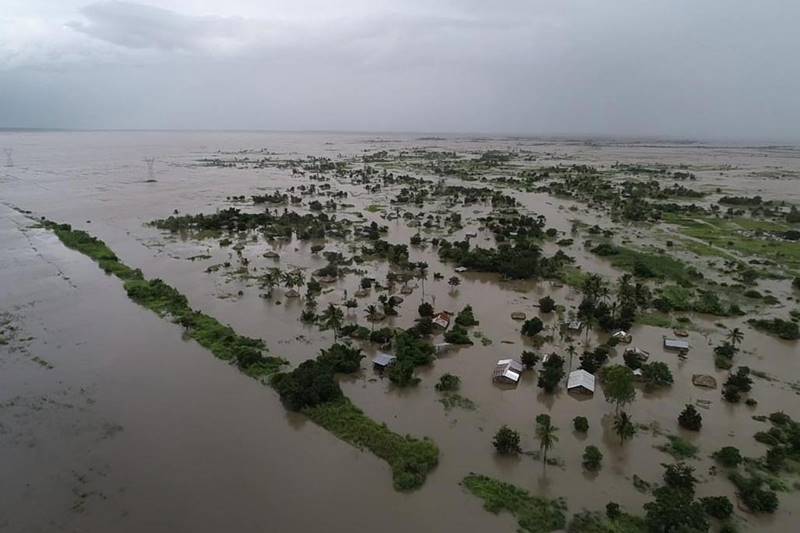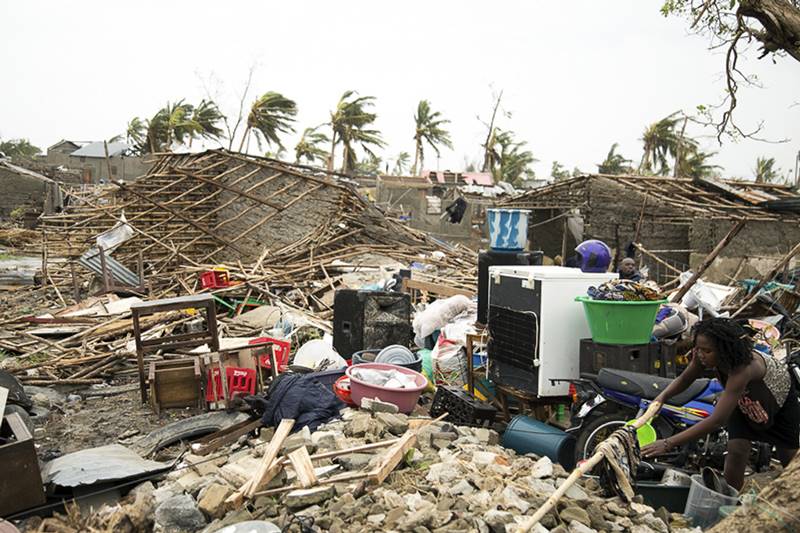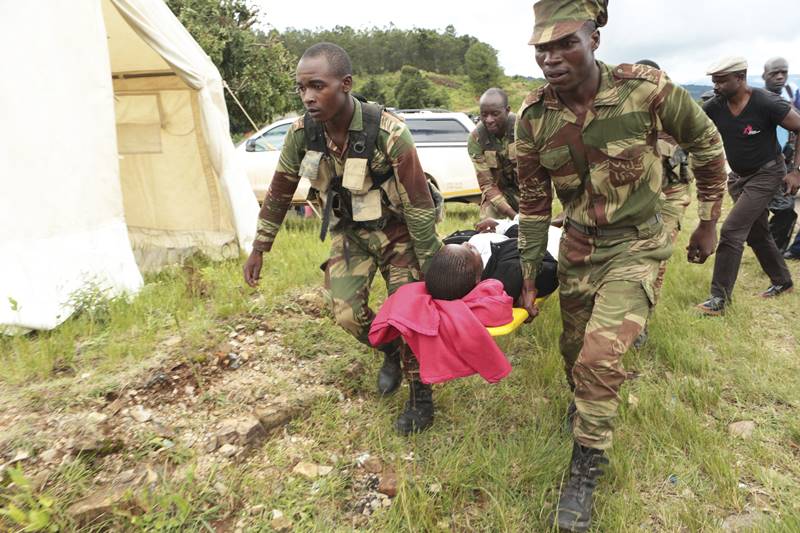
The lives of hundreds of thousands of people are at risk after a cyclone ripped into central Mozambique and heavy rains continue to fall. The death toll rose to more than 300 as rescuers raced against the clock to help survivors and the UN led the charge to provide aid. Aid groups report people clinging to rooftops and trees as rivers burst their banks and waters rise. Authorities openly worry that the world has not grasped the severity of the crisis. The UN, meanwhile, said that one of the worst storms to hit southern Africa in decades had also unleashed a humanitarian crisis in Malawi, affecting nearly a million people and forcing more than 80,000 from their homes. <br /><br /> Here is a look at the disaster that has killed untold hundreds of people in Mozambique, Zimbabwe and Malawi. 
Will the death toll rise? <br /><br /> Almost certainly. Emergency responders are struggling to reach parts of the three countries after some roads, bridges and communications networks were washed away or destroyed. (AP Photo) -

A massive storm surge when Cyclone Idai made landfall in Mozambique over the weekend created what one World Food Program staffer calls "inland oceans extending for miles and miles in all directions." The city of Beira with its some 500,000 residents is said to be 90 percent destroyed. (AP Photo)
-

The European Union's global observation program, mapping the crisis, said some 394 square kilometers (152 square miles) of Mozambique had been flooded. (Reuters Photo)
-

Further deaths could occur if people clinging to hope are swept away by the rising waters or are not reached in time with critical water, food and other aid. (AP Photo)
-

And now authorities are warning of water-borne diseases after what infrastructure existed in the largely impoverished countries was stripped away. (AP Photo)
-

Mozambique's president, after flying over the region, has warned as many as 1,000 people could die. (Reuters Photo)

What is being done to help? <br /><br /> Mozambique and Malawi are two of the poorest countries in Africa, and the economy of once-prosperous Zimbabwe has collapsed in recent years. (Reuters Photo) -

Aid appeals for millions of dollars have begun as the United Nations and other humanitarian organizations rush to deliver food, water, fuel and medicines to the vast affected area. In Beira, a staging point for emergency responders, electricity could be out through the end of the month and a fuel shortage is reported. The Beira hospital is severely damaged. (Reuters Photo)
-

The European Union and Britain have been among the first to pledge aid. The EU says its initial package to Mozambique, Zimbabwe and Malawi is worth about $3.9 million, while Britain says it will provide up to $7.9 million. (Reuters Photo)
-

The US Embassy in Zimbabwe says it is "mobilizing support" for partners in the three countries, with no further details. Tanzania's military airlifted some 238 tons of emergency food and medicine to the three countries. (Reuters Photo)
-

Zimbabwe's president has said a number of countries, including the United Arab Emirates, South Africa, Botswana, Namibia and Angola, also were offering aid.(AP Photo)

What happens next? <br /><br /> Aid organizations and authorities are rushing humanitarian aid to Beira and other areas by air and sea, while rescue efforts push on. The torrential rains are expected to continue in central Mozambique until Thursday. (Reuters Photo) -

As the water begins to recede throughout the region, the extent of the devastation will become clearer. (Reuters Photo)

And thousands, perhaps scores of thousands, of families could be on the move, seeking new refuge after their homes were washed away. (Reuters Photo)

Meta CEO Mark Zuckerberg’s highest-paid employee Alexandr Wang tells teens how to build a lucrative tech future






